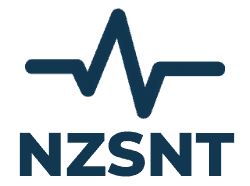Neurophysiology is a discipline within Healthcare Science where Healthcare Practitioners measure the function of the nervous system to help in the diagnosis and/or monitor the progress of Neurological disorders.
Neurophysiology Practitioners perform a range of different tests, in patients of all ages, all of which require a considerable amount of patient contact and also good communication skills as each involves attaching electrodes to the patient and encouraging co-operation before and during the recordings.
Clinical Neurophysiology departments are usually based in hospitals and linked to Neurology departments. Most of the investigations in Neurophysiology are recorded in dedicated environments, however they are also performed at the patient’s bedside, in the intensive care and special baby care units and also in the operating theatre.
There are four main types of tests which are performed in Neurophysiology departments:
- Electroencephalogram (EEG)
- Evoked Potentials (EPs)
- Nerve conduction studies (NCS)
- Electromyography (EMG)
Electroencephalogram (EEG)
The electroencephalogram or EEG is the recording of the function of the cerebral cortex (brain) by applying electrodes to the scalp overlying the various lobes of the brain. The EEG records, over time, the changes in the electrical potentials generated by the cerebral cortex. This investigation has several uses but its main role is investigating patients suspected of having epilepsy.
Evoked potentials (EPs)
Evoked potentials are electrical changes within the nervous system in response to a sensory stimulus (i.e. visual). The main use of evoked potentials is to investigate Neurological disorders, for example optic neuritis.
Nerve conduction studies (NCS)
These studies measure the function of the peripheral nerves, those responsible for movement (motor function) and sensation (sensory function). The nerves are tested by applying a small electrical current to them and recording the response. These tests are used in Neurological and other conditions that affect the function of the peripheral nerves. These tests are performed by Neurophysiology Practitioners but also Clinical Neurophysiologists (doctors who specialise in Clinical Neurophysiology).
Electromyography (EMG)
Electromyography is performed by doctors who specialise in Clinical Neurophysiology; however Neurophysiology Practitioners may assist during these tests. Electromyography (EMG) is a diagnostic procedure to assess the health of muscles and the nerve cells that control them (motor neurons). EMG results can reveal nerve dysfunction, muscle dysfunction or problems with nerve-to-muscle signal transmission.
Motor neurons transmit electrical signals that cause muscles to contract. An EMG uses tiny devices called electrodes to translate these signals into graphs, sounds or numerical values that are then interpreted by a specialist.
During a needle EMG, a needle electrode inserted directly into a muscle records the electrical activity in that muscle.
Other specialised techniques are also performed by some Neurophysiology Departments including:
- Long-term ambulatory EEG
- Video Telemetry
- Sleep studies
- Monitoring during surgical procedures
- Visual Electro diagnostic Investigations
